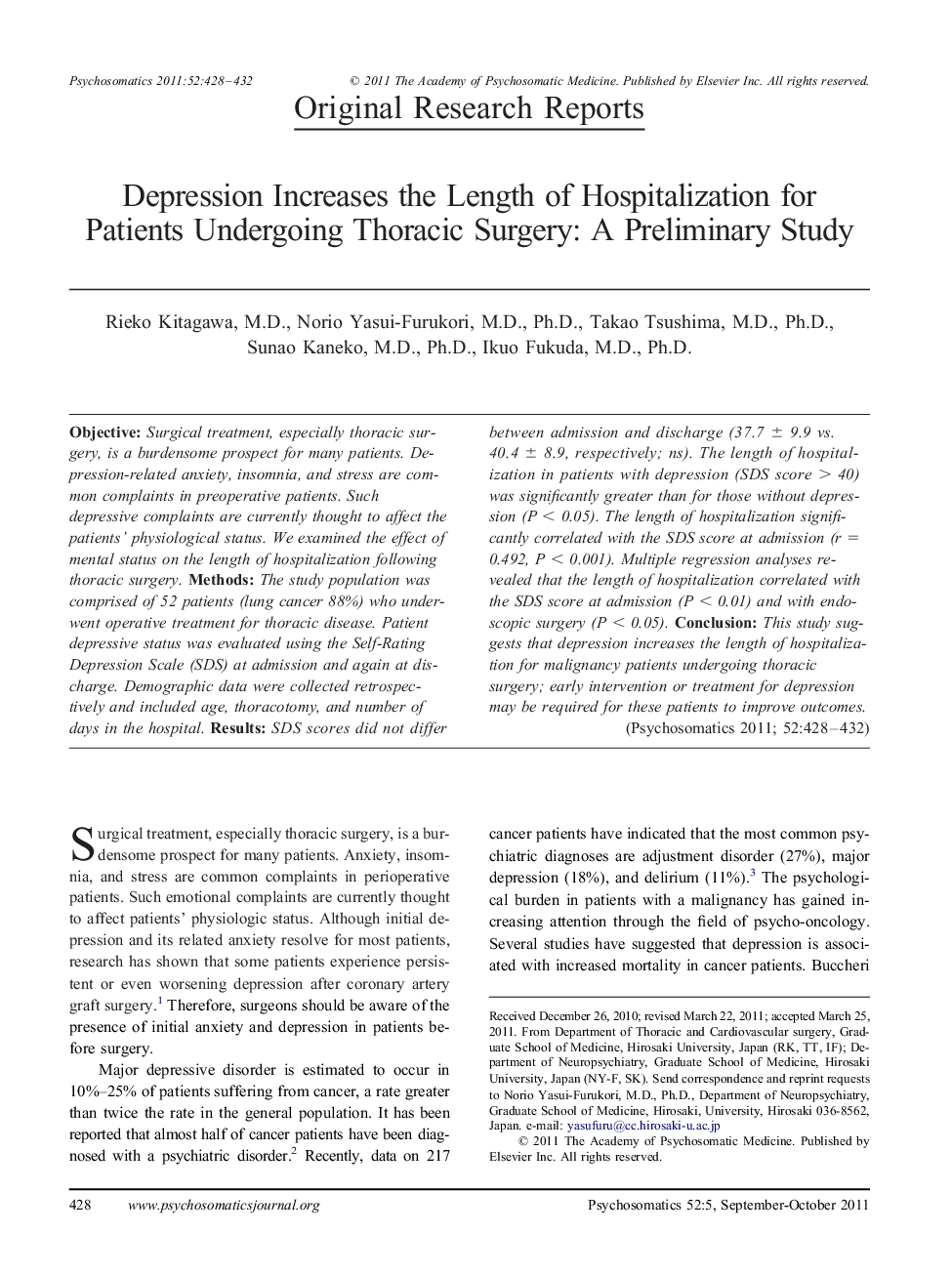| Article ID | Journal | Published Year | Pages | File Type |
|---|---|---|---|---|
| 339115 | Psychosomatics | 2011 | 5 Pages |
ObjectiveSurgical treatment, especially thoracic surgery, is a burdensome prospect for many patients. Depression-related anxiety, insomnia, and stress are common complaints in preoperative patients. Such depressive complaints are currently thought to affect the patients' physiological status. We examined the effect of mental status on the length of hospitalization following thoracic surgery.MethodsThe study population was comprised of 52 patients (lung cancer 88%) who underwent operative treatment for thoracic disease. Patient depressive status was evaluated using the Self-Rating Depression Scale (SDS) at admission and again at discharge. Demographic data were collected retrospectively and included age, thoracotomy, and number of days in the hospital.ResultsSDS scores did not differ between admission and discharge (37.7 ± 9.9 vs. 40.4 ± 8.9, respectively; ns). The length of hospitalization in patients with depression (SDS score > 40) was significantly greater than for those without depression (P < 0.05). The length of hospitalization significantly correlated with the SDS score at admission (r = 0.492, P < 0.001). Multiple regression analyses revealed that the length of hospitalization correlated with the SDS score at admission (P < 0.01) and with endoscopic surgery (P < 0.05).ConclusionThis study suggests that depression increases the length of hospitalization for malignancy patients undergoing thoracic surgery; early intervention or treatment for depression may be required for these patients to improve outcomes.
